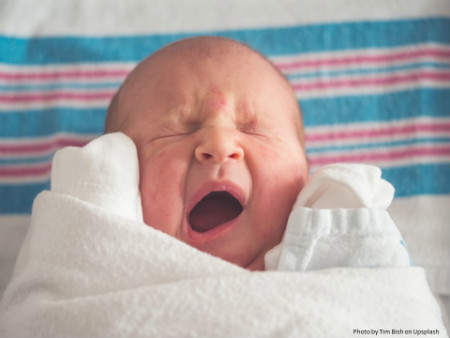In 2006, Chambers and colleagues published an article linking SSRI use during late pregnancy to an increased risk of persistent pulmonary hypertension in the newborn (PPHN). Based on the results of this analysis, the authors estimated the risk of PPHN to be about 1% in infants exposed to SSRIs late in pregnancy (after 20 weeks). However, subsequent studies did not demonstrate a significant association between PPHN and SSRI usage. A new study, this one relying upon data from the Swedish Medical Birth Register, has observed an elevated risk of PPHN among SSRI-exposed infants.
In this case-control study, data was collected by midwives during the first antenatal visit, which usually occurred prior to week 12 of gestation. Information on maternal drug use was obtained at the first antenatal visit. Information on drug exposure late in pregnancy was not available, unless the drug was prescribed by the antenatal clinic itself. (If the drugs were prescribed by a psychiatrist after the initial antenatal visit, this information would not have been recorded.) Identification of infants with PPHN was made from neonatal discharge diagnoses recorded using the modified ICD-10 (International Statistical Classification of Diseases and Related Health Problems). The study included a total of 831,324 infants born between the years of 1997 and 2005.
At the initial visit, mothers of 7587 infants reported the use of SSRI drugs in early pregnancy: citalopram (39%), sertraline (31%), fluoxetine (15%), paroxetine (13%), fluvoxamine (2%), or escitalopram (2%). A total of 506 infants were identified with a discharge diagnosis of PPHN among the 831,324 infants born. When all cases were analyzed, an increased risk for PPHN was observed among the SSRI-exposed infants (risk ratio 2.01) and it was marginally statistically significant. Controlling for other risk factors, including maternal body mass index, smoking, or diabetes, did not affect the association.
This study is consistent with the previous study from Chambers and colleagues which demonstrated an association between maternal use of SSRIs and PPHN. One of the major advantages of this study is that exposure information was collected prospectively and not based on retrospective inquiries which could be affected by recall bias and incomplete data. However, one of the major shortcomings is that, while the Swedish Medical Birth Register provides rich data on maternal drug use early in pregnancy, this database lacks detailed information regarding exposures occurring after the first antenatal visit.
The previous study from Chambers and colleagues suggested that late, but not early (before 20 weeks), exposure to SSRIs was associated with an increased risk of PPHN. The current study is based on the premise that early exposure to SSRIs is a proxy for late exposure; however, we know that some women taking antidepressants at the first antenatal visit may later elect to discontinue treatment. In addition, a significant number of women may elect to initiate treatment later in pregnancy.
The estimate of risk in the present study is lower than that reported in the Chambers study. Using the data from the Swedish Medial Birth Register, the risk ratio was calculated to be 2.01 and was slightly higher (2.36) if infants born earlier than 37 weeks were excluded. This translates into about 1.5 cases per thousand SSRI-exposed infants in this cohort. This lower estimate of risk could reflect the methodological differences between the two studies. In the Chambers study, risk may have been overestimated due to recall bias. However, the risk estimate in this study may have been underestimated if cases of late exposure were underreported.
While the current report may signal a link between SSRI exposure and risk for PPHN, the various studies taken together are inconsistent and, if this association does in fact exist, it is difficult to accurately quantify the magnitude of the risk. Women considering the use of antidepressants during pregnancy must be made aware of this risk but it must be weighed against the risks of untreated illness in the mother. To avoid or withhold antidepressants during pregnancy may place these women – and their children – at risk. Depression in the mother is not a benign event and, when left untreated during pregnancy, has been associated with poor neonatal outcomes, including preterm birth, low birth weight, and lower Apgar scores.
Ruta Nonacs, MD, PhD
Källén B, Olausson PO. Maternal use of selective serotonin re-uptake inhibitors and persistent pulmonary hypertension of the newborn. Pharmacoepidemiology and drug safety 2008; 17: 801-806.








Leave A Comment